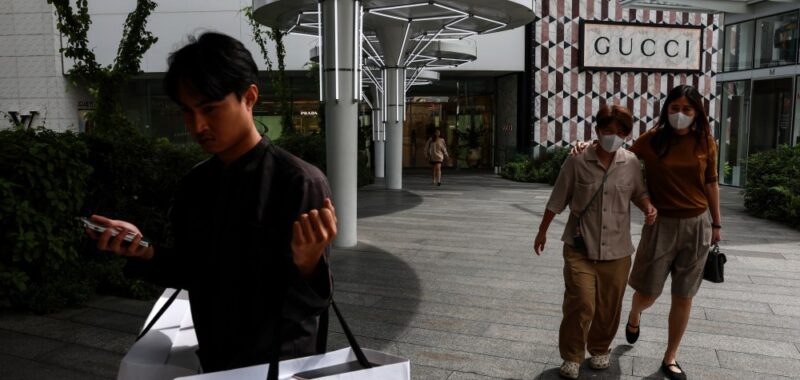A recent Oliver Wyman survey found that Chinese travelers are not only spending less on luxury goods, but also turning to more affordable alternatives, particularly among Millennial shoppers.
The research was based on a survey of 7,350 mainland Chinese consumers with a monthly household income of at least 30,000 renminbi, or $4,152, a level achieved by around 5 percent of China‘s total population in 2024. Around half of the respondents replied in June, and the other half in October.
With foreign airlines cutting or pausing direct flights to China due to weakening ties, interest in global travel has waned as well. Based on the survey, 57 percent of respondents expressed intentions to reduce international shopping budgets, while 45 percent indicated they expect to travel less frequently in the coming year.
Imke Wouters, partner at Oliver Wyman, noted that affluent households responded especially cautiously, as confidence in financial stability remains weak.
However, international travel to the neighboring visa-free Malaysia remains robust, according to the survey.
“Malaysia’s diverse cuisine, attractive shopping experiences, and rich cultural tapestry are key drivers behind its newfound popularity, according to the survey. In contrast, Thailand’s appeal has decreased, potentially due to ongoing safety concerns among Chinese travelers,” the report said.
Similarly, domestic tourism remains a growing industry. According to the survey, during this year’s Golden Week, domestic tourism surpassed pre-pandemic levels. However, average spending was 2 percent below pre-COVID-19 levels in 2019.
The survey found that Hong Kong and Macau remain popular outbound travel destinations for Chinese shoppers, while the appeal of the duty-free island of Hainan has been subdued.
“While accommodation and transportation may experience an earlier recovery, expenditures related to shopping and dining are likely to lag behind. This is attributed to a shift in travel modes toward lower-cost options such as city walks and shifts from high-end dining to local cuisine/snacking experience,” added Wouters, adding that both Hong Kong and Macau’s visitor numbers will recover to 2019 levels by next year. “However, it may take longer for Hong Kong to return to the peak levels experienced in 2018,” Wouters said.
The survey also found that an increasingly cautious luxury spending mindset, amplified by top-down initiatives to ban “wealth-flaunting,” has given rise to dupe alternatives, which are typically priced at a 20 to 50 percent discount of the original luxury product, according to Wouters.
Oliver Wyman’s report said that both core luxury shoppers, or people who spend more than 40,000 renminbi, or $5,523, and casual luxury shoppers, or people who spend less than 40,000 renminbi, are expected to curtail their expenditures in the coming year.
“Dupe products are seen as an attractive alternative by luxury shoppers who care about good quality and design first and foremost before brand image,” Wouters said. “This trend is most pronounced among Millennials, who are leading the charge in adopting more affordable alternatives to traditional luxury goods.”

